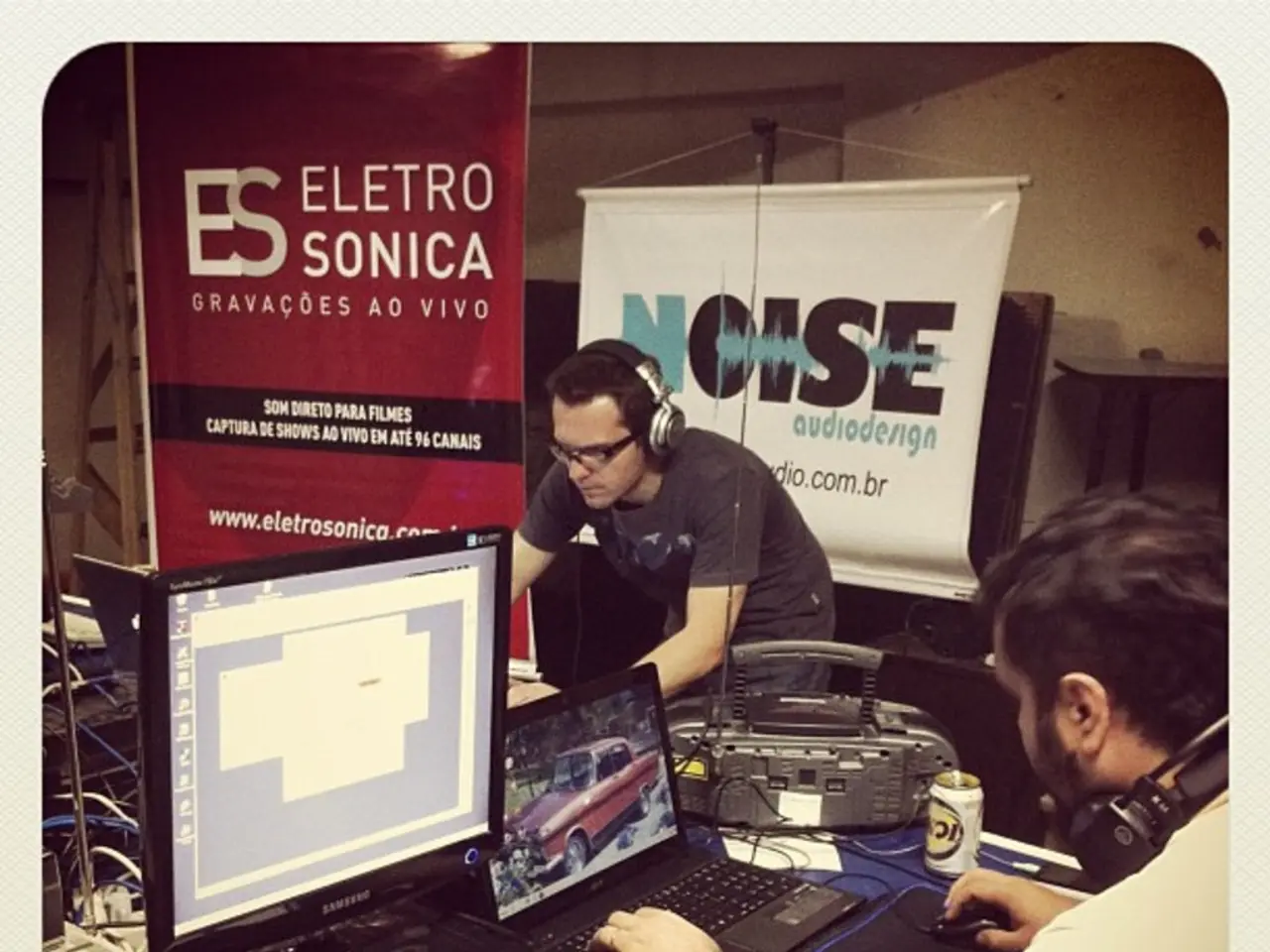Researchers suggest that engaging in multitasking could potentially cause long-term harm to your memory.
Chronic multitasking, a common behaviour in today's digital age, has been found to have significant effects on brain structure and memory. A series of studies have revealed that heavy multitaskers, particularly those under 30, show alterations in neural development. These changes include thinner cortical regions and less efficient communication between brain areas compared to age-matched controls with lower multitasking exposure [10].
One of the most concerning findings is that these changes are most pronounced in younger brains, suggesting they may be particularly vulnerable to multitasking's damaging effects [1]. Recent advances in neuroimaging techniques now allow scientists to observe multitasking's physical effects on brain structure [3].
Long-term exposure to stressors such as elevated cortisol levels, which can be exacerbated by persistent multitasking and cognitive strain, is known to cause hippocampal shrinkage and reduced gray matter density, leading to impaired memory function [2]. The hippocampus, a key memory centre in the brain, shows significant reduction in gray matter density due to chronic multitasking [11].
Similarly, the anterior cingulate cortex (ACC) also experiences changes. This brain region is involved in conflict monitoring during multitasking. Structural and functional alterations in the ACC have been observed with chronic multitasking, reflecting impaired executive control and diminished cognitive flexibility [5].
Each time your brain switches focus during multitasking, it engages the prefrontal cortex, creating a phenomenon called "attention residue," where your brain continues processing the previous task while attempting to engage with the new one [4]. This continuous switching interferes with hippocampal function in three critical ways: disrupted encoding, impaired consolidation, and accelerated forgetting [13].
Multitasking also appears to disrupt the brain's dopamine system, potentially leading to attention problems similar to those seen in ADHD [7]. However, some studies have shown promising results with interventions such as attention training, mindfulness meditation, nature exposure, digital boundaries, adequate sleep, and educational interventions [14].
Researchers are developing tools to help protect brain health in an increasingly distracting world. These include neuroergonomic design, cognitive monitoring technologies, brain-computer interfaces, and educational interventions [19]. Early-stage research explores using neurofeedback to strengthen attention networks weakened by multitasking [17]. New interfaces are being developed that discourage rapid task-switching and promote focused attention states [15].
Wearable devices that track attention patterns throughout the day are entering development, potentially allowing individuals to receive real-time feedback about attention fragmentation [16]. Some experts argue that we need to approach multitasking as a public health issue, developing evidence-based recommendations for cognitive health in the digital age [20].
Recent research from Stanford University reveals that chronic multitasking may cause lasting structural damage to key memory centers in the brain [24]. MRI studies have shown that chronic multitaskers show reduced gray matter volume in the hippocampus, with differences becoming statistically significant after just six months of heavy multitasking behaviour [18].
Chronic multitasking fundamentally alters how your brain encodes and consolidates memories [13]. Participants who regularly engaged in heavy media multitasking showed an average 8% reduction in gray matter density in the hippocampus [11].
In summary, chronic multitasking may cause a decrease in hippocampal gray matter density and alterations in ACC structure and function, which underscores potential long-term neuroplastic impacts impairing memory, focus, and cognitive control. However, detailed neuroimaging studies specifically quantifying these structural changes related to multitasking remain an active research area [1]. The future of human memory capacity will be shaped by our relationship with attention and the technologies that influence it [23].
References: 1. Brain Imaging Reveals Changes 2. Hippocampus 3. Recent advances in neuroimaging techniques 4. Each time your brain switches focus 5. Anterior cingulate cortex 6. Default Mode Network Interference 7. Neurochemical Depletion 8. Demographic Most at Risk 9. Longitudinal Study Findings 10. The most concerning finding? 11. MRI studies reveal 12. Intervention Study Results 13. Multitasking directly interferes with hippocampal function 14. Evidence-Based Approaches 15. Neuroergonomic Design 16. Cognitive Monitoring Technologies 17. Brain-Computer Interfaces 18. Recent research from Stanford University 19. Future of Attention 20. Public Health Approach 21. Regulations on Design Features 22. Individual Responsibility 23. Shaping the Future of Human Memory
Technology's impact on brain structure and cognitive functions is a growing concern in the field of health-and-wellness, particularly with regards to mental-health. For instance, chronic multitasking, a behaviour common in today's digital age, alters the structure of the anterior cingulate cortex and hippocampus, which are both critical for focus and memory, due to technology-induced stress and cognitive strain [2, 11, 18].




